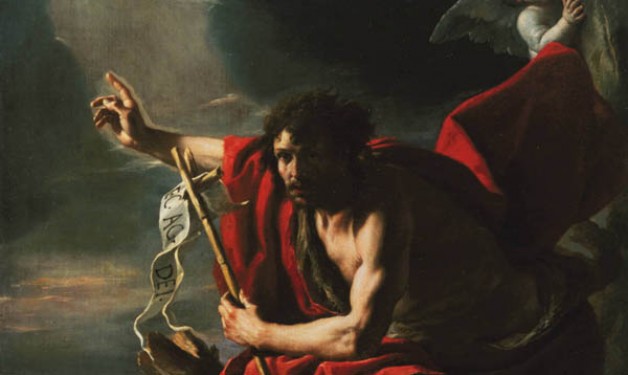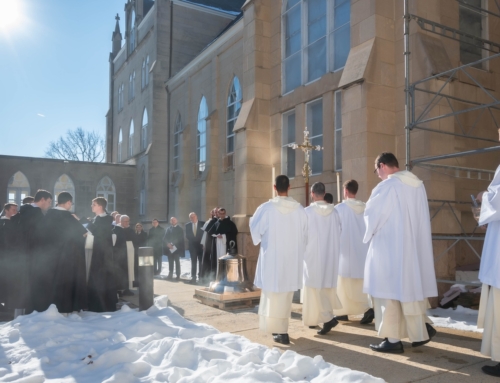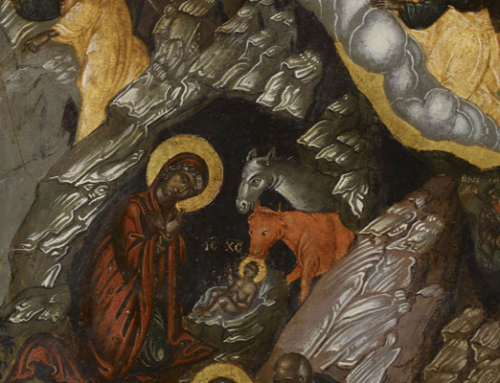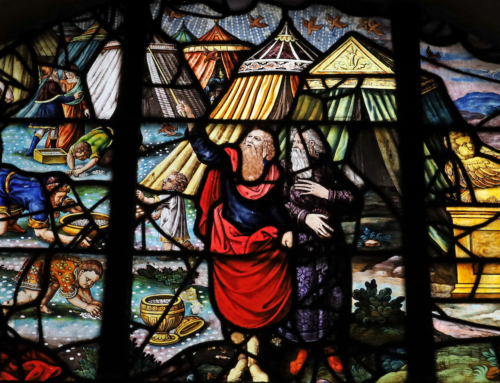“Rejoice in the Lord always; again I say, rejoice! Indeed, the Lord is near.” The entrance antiphon for this coming Sunday’s Mass reminds us of the proximity of our Lord’s coming. We are now in the middle of Advent. Two weeks are behind us, but two weeks still stand between us and Christmas. The midpoint of any period of expectation can easily become a time of complacency, but the Church startles us awake and reminds us: “Rejoice in the Lord!”
This Sunday the Church shakes things up a bit. The previous two weeks we were exhorted to keep vigil for the coming of the Lord and to prepare His way. This weekend we are instructed to do something completely different: “Rejoice in the Lord! Gaudete in Domino” Why should we rejoice at this point? Christmas is not yet upon us. Shouldn’t we just stick to our vigils and preparations?
The ability to rejoice in the midst of expectant waiting is a necessary part of preparing for a great joy. Together as members of the Church, we take a moment to look ahead at the glorious gift we await: the coming of the Incarnate God. The Church is realistic. In the midst of our vigils and preparations we need to be reminded of the reason for our anticipation, the joy of being in the Lord’s presence. We prepare so that when He does come, we may be united with Him. This weekend reminds us of the joy that awaits us, giving us a pledge of future glory. In this way the Third Sunday of Advent, Gaudete Sunday, is intrinsically hopeful and Eucharistic.
First, this Sunday encourages and helps us to deepen our hope. The object of hope is a future good, difficult but possible to obtain. Our celebration of the Lord’s first coming spurs us on to hope for the great good of His future coming in glory. This moment is not yet here, but He is on His way. The Lord’s definitive presence among us is difficult, indeed impossible, for us to obtain by our own power because we cannot raise ourselves up to be in God’s presence. His presence is a gift that He has given to us. This is the gift that lies at the heart of the mystery of the Incarnation. As Isaiah tells us, “Behold a virgin shall conceive and bear a son, and his name shall be Emmanuel (which means, God with Us)” (Mt 1:23; Is 7:14). God dwells with his people so as to bring us into His presence. Through Christ we are able to be united with God and remain in His presence for all eternity. It is the Incarnation alone which makes this possible and gives us a reason to hope. Let us then “rejoice in the Lord” who is our hope.
Secondly, Gaudete Sunday is Eucharistic. Through the preparations of Advent, our eyes are turned to the future. We are focused on the coming of the Lord and the joy that His coming will bring. This is our pledge of future glory—the very words St. Thomas Aquinas uses in praise of the Blessed Sacrament:
O Sacred Banquet, in which Christ becomes our food, the memory of his Passion is celebrated, the soul is filled with grace, and the pledge of future glory is given to us. Alleluia.
The Third Sunday of Advent and the Eucharist share this in common: Both remind us of our end which is to be with God. This is the “future glory” that is pledged to us. Gaudete Sunday reminds us to rejoice in the fact that God has destined us to be in his presence, and the Eucharist gives us a real foretaste of that presence and the promise of God’s glory that we will experience on the last day. Even though both are focused on the future, neither forgets our current state. Gaudete Sunday encourages us to renew our vigils and preparations with greater zeal because of the proximity of Christ’s coming, and the Eucharist is our heavenly bread that nourishes us along the way until we have been definitively brought into the Glory of God.
So then, “Rejoice in the Lord always, I shall say it again: rejoice!” (Phil 4:4–7). Let us remember the depth of God’s love for us. He sent His only Son to secure for us our redemption. This beloved Son has become our hope and our nourishment for this life so that we may enjoy His presence forever in the next.
✠
Image: Mattia Preti, St. John the Baptist Preaching







